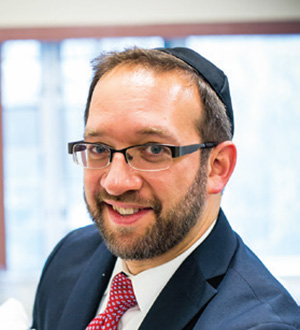
The midrashim (Yalkut Shimoni Devarim 30:14, Tanna D’Bei Eliyahu Zuta ch. 14) record an encounter between Eliyahu Hanavi and one who had not amassed any significant Torah knowledge. Eliyahu asked him, “What will you answer Hashem upon the Day of Judgment?” The fellow answered him, “The heavens did not grant me the ability to learn.” Eliyahu asked him, “What is your livelihood?” and the man proceeded to highlight that he was indeed endowed with a great deal of wisdom and insight as evident in the creativity with which he performed his job. To which Eliyahu added, how much more so with something our Torah describes as “close to you…in your mouth and in your heart to perform.”
Beyond the implication for project-based learning and design theory in the classroom, this passage presents a fascinating and relevant question for the next generation of learners in our community. For decades now we have expected each and every one of our children to learn and ultimately master many aspects of Torah Shebichtav and Torah Shebe’al Peh—something that is, perhaps, unprecedented in the modern era. Yet, many of our children, without articulating it, might sense about themselves that they are not endowed with the ability and/or interest to master Mikra, Mishna, Gemara and Halacha. They happily identify as members of the Modern Orthodox community and have wonderful relationships with their family and friends. They are good students who work hard and experience success. Yet when it comes to the level of rigor necessary to meet the highest expectations of excellence in every aspect of their school’s curriculum, they feel misplaced or disengaged.
I am describing students with refined characters, giving natures and a love for Judaism. Yet when confronted with a heavy focus on critical analysis as the defining feature of one’s Jewish learning, they feel uninspired or unenthusiastic.
The Mishna in Pirkei Avot lists two consecutive features that speak to this issue in its list of the 48 methods of acquiring Torah: hamakir et mekomo, one who recognizes his place, and hasameach b’chelko, one who is happy with his portion in the Torah World. How can we ensure that our children each develop these attributes within our current system—especially given the fact that the mishna lists these characteristics as critical to success in Torah learning?
The answer lies in our firm belief that every learner has their own portion in the Torah world. We reinforce that belief three times a day when we complete our Shemoneh Esrei with the familiar coda: “v’tein chelkeinu b’Toratecha, grant us our portion in Your Torah.” Furthermore, consistent with Eliyahu Hanavi’s comments, I argue that every learner has their portion in the beit midrash. That portion might look or feel different depending on the student. More importantly, each child’s ability to discover their portion will be achieved via different methods; nevertheless, it is there waiting for them, and our community is enhanced when that portion is unlocked.
Achieving this goal on behalf of each of our children requires bold thinking and creativity on behalf of those who are familiar with the world of Torah and mitzvot. At home, it may mean carefully selecting the right times, settings and material to learn with your child during those precious moments you have together. The right decision in that setting may look different for each child and may not line up with what we experienced ourselves growing up. In school, it may similarly require each shiur, program or track to be carefully crafted to fit the unique profile of the students in the room. All of this with the confidence that the intended outcome of high-quality engagement in Torah study and a life-long relationship with Torah and mitzvot will not be compromised by meeting our children where they are and providing the right setting for them to grow step by step.
When done right, a true sense of being “sameach b’chelko” results. Children in the correct setting will finally be able to articulate the sense of “makir et mekomo” they have been searching for all along.
By Rabbi Asher Yablok
Rabbi Asher Yablok is head of school at TABC.








